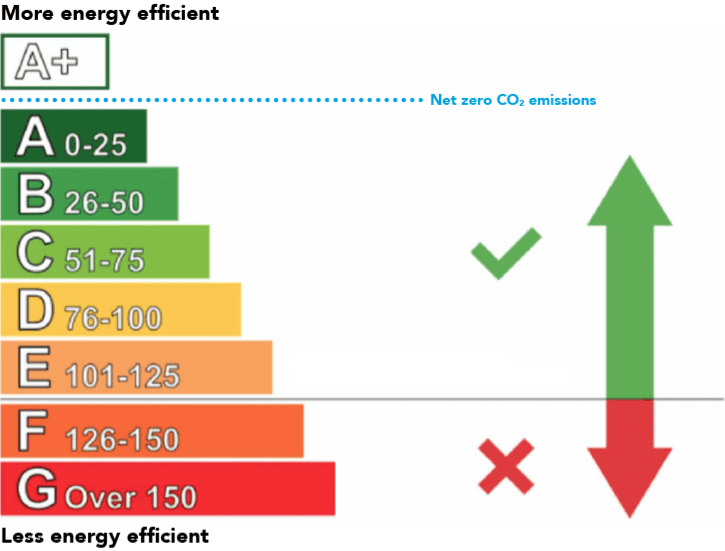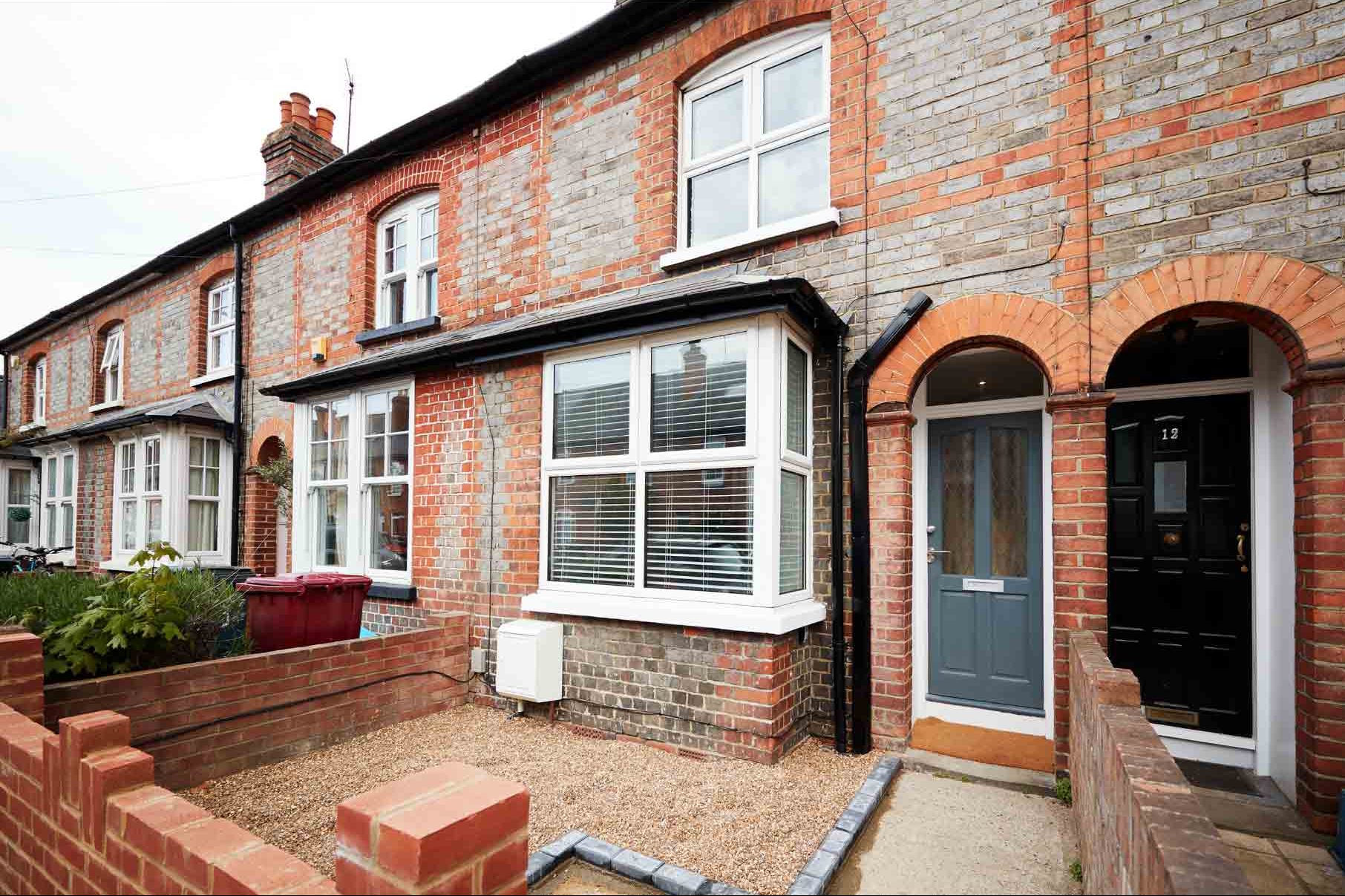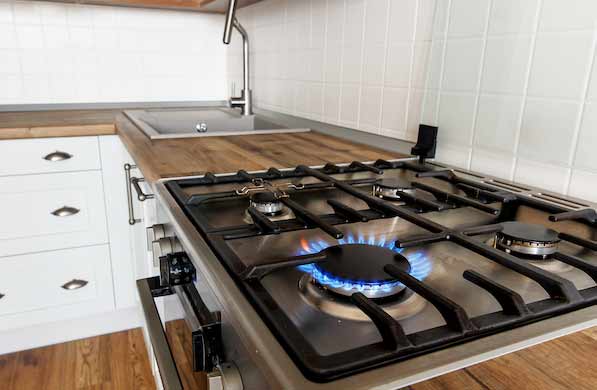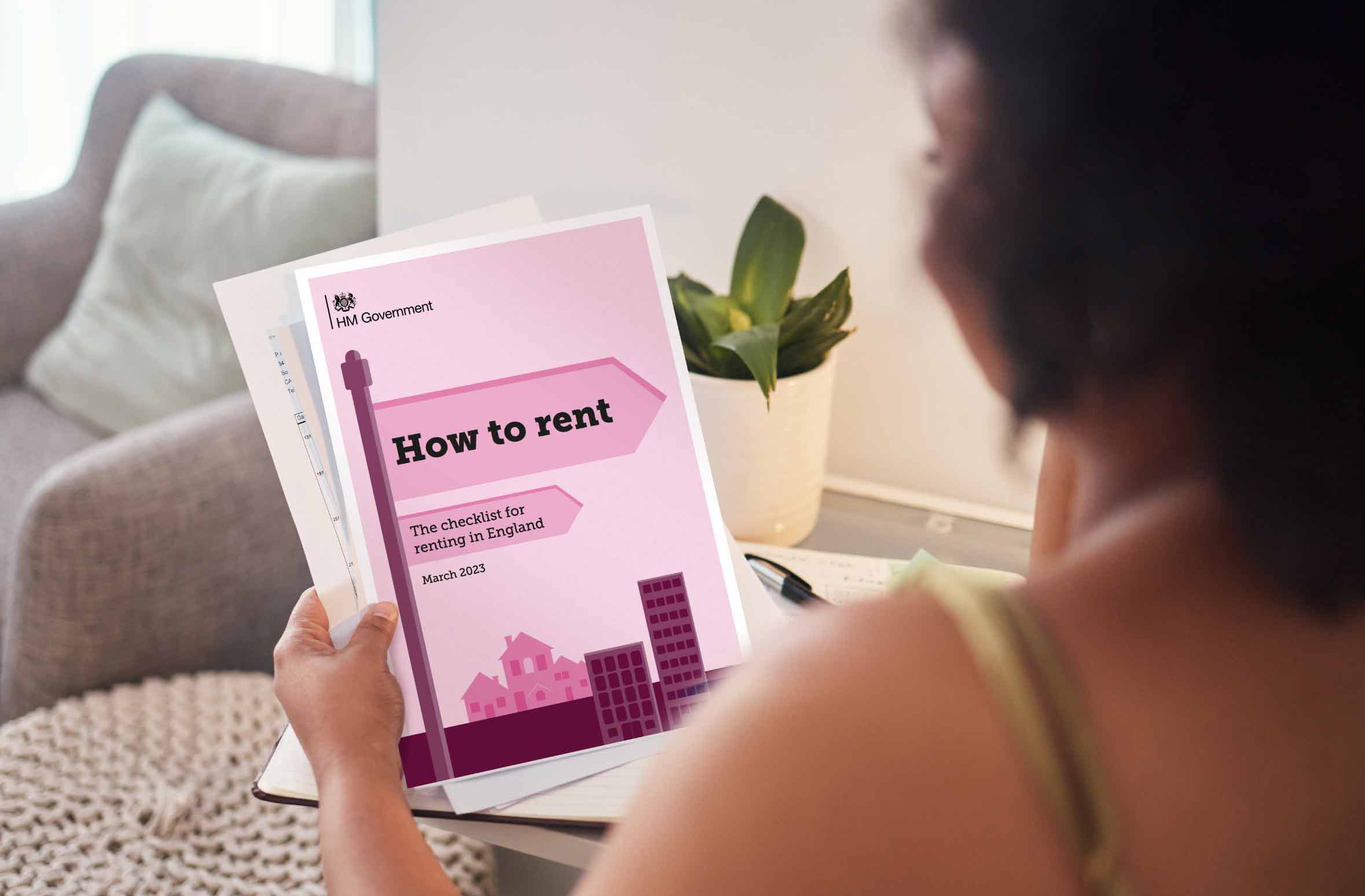Private Landlord Legal Services
If you are an existing private landlord or if you are considering becoming a private landlord, it is important that you are aware of your legal responsibilities, as failure to comply with these requirements can become a costly and time-consuming exercise.
At Paul Crowley & Co Solicitors Limited our experienced property team have helped many private landlords to fulfil their legal obligations, by remaining fully compliant, safeguarding their interests, protecting their investment and availing their tenants of their legal rights.
What documents does a landlord have to provide to new tenants?
Upon a new tenant moving into a property there are a number of mandatory requirements a landlord is legally obliged to provide to the tenant. These mandatory requirements are also applicable to existing tenants.
Failure to comply with these mandatory requirements could result in the landlord being fined, lead to a banning order to prevent you being a landlord, in some cases a custodial prison sentence could be enforced, plus the inability to seek possession of your property.
With legal requirements continuously evolving in the residential private rented sector, it’s proving increasingly difficult for a private landlord to remain compliant.
Following is a list of the legal documents a private landlord will need to provide to their tenant:
Assured Shorthold Tenancy (AST)
Assured Shorthold Tenancy is the most common type of tenancy agreement used by a private landlord to let a residential property and contains all the terms and conditions of the tenancy.
The AST is a legally binding document between the landlord and the tenant, so it is important from the outset to get the tenancy agreement correct. Paul Crowley & Co Solicitors Limited can assist you with the provision and completion of an AST, then should any disputes with the tenant emerge, it will be easier for the landlord to resolve.
The tenancy agreement can be:
- Fixed term – often 6 or 12 months
- Periodic – rolling weekly or monthly
Energy Performance Certificate (EPC)
Energy performance certificates are required for all domestic privately rented properties. It is illegal to rent out a property if it does not have an EPC. An EPC is valid for ten years, when the certificate runs out, you do not need to renew it unless you are selling the property or entering into a new tenancy with new tenants.
An EPC provides a properties energy efficiency rating from A to G and contains recommendations on reducing energy usage.

The current ruling of April 2024 is you cannot let a property which has an EPC rating below E, there is talk of this being increased to C but this is yet to be confirmed.
Since 1 April 2018 it became a legal requirement under the Domestic Minimum Energy Efficiency Standard (MEES) Regulations for private landlords of domestic properties to ensure the EPC has at least a minimum E rating or higher, not all landlords are aware of this requirement (beginning 2025 this minimum will be raised to certification rating of C or above).
It’s important to comply with the MEES regulations because if your local authority believes you haven’t, they can serve you a compliance notice, and if there is a confirmed breach you could receive a financial penalty of up to £5,000 per property. If you require further advice about EPC’s, contact our conveyancing team at Paul Crowley & Co Solicitors Limited for free initial expert advice.
A Gas Safety Certificate (GSC)
Before moving in the landlord must give the tenant a valid copy of the Gas Safety Certificate. Without a GSC a private landlord, is unable to legally rent out their property.
Property gas safety checks must be carried out annually by a Gas Safe engineer and clear records must be kept. The requirements for landlords as to gas safety are under the Gas Safety (Installation and Use) Regulations 1998.
The main responsibilities are:
- Annual gas safety checks: All appliances, pipework, chimneys and flues should have annual safety checks carried out by a Gas Safe registered engineer, your engineer should be able to show you an ID card or you can check at gas safe register. You’ll receive a Gas Safety Certificate or Landlord Gas Safety Record as proof.
- Servicing Gas Appliances: The landlord is required to check how often the appliance manufacturer recommends a service, if this information is not available you should arrange to have them serviced annually by a registered Gas Safety engineer.
- Gas Safety Record: You need to provide a copy of this to your tenants within 28 days of the safety check and keep copies of the record until the next 2 checks have been carried out.
Electrical Installation Condition Reports (EICR)
Electrical safety standards were introduced on 1 June 2020 for all new tenants from that date and April 2021 for tenants prior to June 2020.
This was introduced to improve safety for all properties in the private rented sector. Private landlords are legally required to have their rental properties inspected and tested by a fully qualified electrical engineer at a minimum of every 5 years. Depending on the size of the property, a typical EIC report will cost between £100 and £300, plus any costs for the repair or replacement of non-compliant electrical hardware, such as old fuse boards, broken sockets, etc.
A copy of the electrical safety report should be provided by the landlord to the tenant at the time they move in or within 28 days of the report being carried out, and if requested provide a copy to the local authority. It is critical for the landlord to remain compliant and be kept up to date with the correct legal advice as failure to supply a valid EICR can have serious financial consequences for the landlord, who could face a financial penalty of £5,000 for a first offence and up to £30,000 thereafter for not complying.
A copy of the How to Rent Guide
Landlords should provide new tenants with a current copy of the ‘How to Rent’ guide which Paul Crowley & Co Solicitors Limited can supply for you. This guide explains the rights and responsibilities of both landlords and tenants.
Details of the Deposit Protection Scheme (DPS)
You are legally required to protect your tenant’s deposit in a tenancy deposit protection scheme which ensures that tenants can get their deposit back as long as they have fulfilled their obligations under the tenancy agreement and have caused no damage to the property. Within 30 days of a tenant paying their deposit, the landlord should put the money in a DPS and provide the tenant with the necessary details (otherwise known as the Prescribed Information).
Failure to do so may lead to your tenant pursuing a Tenancy Deposit Claim against you whereby they can claim a sum of compensation equivalent to up to 3 times the deposit, plus the return of the deposit if the tenancy has ended.
We have represented a number of landlords whom have found themselves in the position of defending a Tenancy Deposit Claim and can offer legal advice in relation to defending this type of claim. If you are a landlord in this situation, please contact us to obtain a free quote for our services regarding this matter.
Right to Rent Checks
You are legally required to conduct a check to ensure all over eighteen-year-olds occupiers of any property you are letting have the right to rent in the UK.
You can ask to see proof of ID with British or Irish passport, current or expired, request a copy of their national insurance number, if the proposed tenant is from outside of the UK ask to see a certificate of registration or naturalisation as a British citizen.
Failure to do so can result in a prison sentence and a hefty fine under the immigration act of 2016.
Selective Licence of privately rented properties
Private landlords need to check with their local council of any of their rental properties to ensure if a selective license is required or not.
If a selective license is required, they must obtain one as this is would then be mandatory for that property. Each local council will have a different set of requirements, however evidence of the following will normally be required as a minimum, although every local authority will differ.
- Gas Safety Certificate
- Electrical Installation Condition Report (EICR)
- EPC Certificate
- How to Rent Guide
- Confirmation or where smoke and carbon monoxide alarms are sited
- Information of Deposit Protection Scheme (DPS)
Selective licensing gives local authorities powers to regulate landlords and managing agents of private rented property in areas that suffer from low housing demand and/or high levels of anti-social behaviour and/or deprivation.
Failure to comply with the selective licencing scheme if required could result in a fine from the council and if you do not have a license and require possession of your property this will hinder the process.
Evicting a private tenant
Without serving notice a landlord is unable to end a tenancy.
Serving an eviction notice to a tenant might seem like something the landlord can do themselves, but many landlords who go it alone without the correct legal advice, mistakenly serve invalid notices which can delay the process causing landlords or their agents to start procedure all over again, which is time consuming and costly to the landlord.
Notices must be served in writing, you can confirm the notice has been served by telephone, message or email but you cannot serve the notice in this format. The date of service is crucial to the correct serving of an eviction notice. A section 21 sometimes called a “no fault” notice as a landlord currently does not need a reason for eviction.
Section 21’s can be posted or delivered by hand, and you only need to deliver to the property. However, it must be delivered prior to the date of service, for this we always aim for the following: Deliver during the working day Monday to Friday (excluding bank holidays) allowing 2 working days for 1st class postage with service being noted as the next working day. Delivering by hand we aim to deliver the day before service, with service always being a working day Monday to Friday (excluding bank holidays).
If you are concerned about any aspect of this procedure regarding serving notice on a tenant to gain possession of your property, our dedicated landlord services team at Paul Crowley & Co Solicitors Limited will arrange to serve the notice for you.
So, adhering to the correct legal procedures is key to obtaining a possession order to evict a tenant. In most cases the landlord will be required to serve a notice and obtain a possession order from the court before the tenant can legally be evicted.
Courts may take the view that a possession order could make the tenant homeless, in which case if there is an error in the notice the possession order will be rejected. In order to get it right first time, consult with our dedicated property team at Paul Crowley & Co Solicitors Limited, we will follow the correct procedures and serve the notice correctly for you.
Landlord Section 8 and 21 Notices
Section 8 Notices:
Section 8 notices can be used for lots of situations, such as when your tenant is in rent arrears of 2 months or more, has breached their tenancy agreement or has damaged the property.
If you’re not sure if you can serve a section 8 notice, contact Paul Crowley & Co Solicitors Limited for legal advice before serving.
The notice must be filled in correctly and state the grounds the tenant has breached according to Schedule 2 of the Housing Act 1988. Grounds 1 to 8 are mandatory and if breached the court must grant possession to the landlord. Grounds 9 to 17 are discretionary, and the court will consider whether they think granting possession is reasonable. How much notice you must give depends on which grounds you rely on.
Section 21 Notices:
Section 21 notices can be used after a fixed term tenancy ends, or during a periodic tenancy. However, there are some exceptions to this, for example you cannot serve a Section 21 if the tenancy is less than 4 months or if you did not serve the correct documents to the tenant when they moved in.
As with a Section 8, the notice must be filled in correctly but the notice period as of 1st October 2021 must be at least 2 months from the date the notice must end and on the last day of the ‘period of the tenancy’, (although this was lengthened from March 2020 to September 2021).
Not sure if you can serve a notice? Give us a call and our friendly team of Landlord law experts will be happy to help.
Safety standards private landlords must comply with
To comply with rental property safety standards landlords must ensure their tenants are safe by implementing the following:
- Smoke alarms must be installed on each floor of the property.
- Carbon monoxide detectors must be fitted.
- Gas safety certificates for each gas appliance must be available in the property.
- If the property is rented as furnished, all furniture must display safety standard approved labels.
- All electrical devices must be safety standard compliant.
- Electrical installation conditioning report
- Include local authority private landlord licences
To maintain good housing standards within the private rented sector, local authorities can assess the condition of a privately rented property and any potential hazards, by using the Housing, Health and Safety Rating System (HHSRS).
Contact the Landlord Legal Services Experts
If you require legal advice on your obligations as a landlord or need help with eviction of a current tenant, our experienced team of solicitors at Paul Crowley & Co would like to hear from you. You can contact us on 0333 200 0681 or email us.
Follow us on social media
Keep up-to-date with Paul Crowley & Co Solicitors Limited by following us on social media! Tweet us or message us on Facebook:




